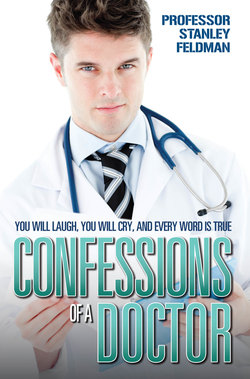Читать книгу Confessions of a Doctor - Stanley Feldman - Страница 12
На сайте Литреса книга снята с продажи.
THE CHILDREN’S HOSPITAL
ОглавлениеDavid Levi, a senior surgeon at the Westminster Children’s Hospital, lived for surgery. He taught anatomy at St Mary’s Medical School where his Saturday morning anatomy demonstrations were a ‘tour de force’, attracting a large audience. He was ambidextrous: his particular trick was to use both his hands, each holding a piece of chalk, to draw the two sides of the vertebral column at the same time. This feat was always rewarded with a round of applause. He was an old-fashioned general surgeon, and he would follow an operation to remove a child’s tonsils with a prostatectomy on an octogenarian, and then an operation on a baby with pyloric stenosis.
He claimed he was a lucky surgeon but in fact he owed much of his success to a detailed knowledge of anatomy. As he operated he would mumble to himself: ‘I am far too busy to have complications.’ Indeed, the complications were very few and far between. Before a list of several operations he would arrive in the changing room with the command to the nursing staff to ‘send for the first two patients’. He would then proceed to remove his suit jacket which had the shirt cuffs attached to the inside of the jacket sleeves. Once down to his trousers and short-sleeved shirt (he never removed his collar and tie), he would don a plastic apron and he was ready to operate.
In his private practice, Levi was often assisted by the patient’s general practitioner, which allowed the GP to charge the patient an ‘attendance fee’. These doctors were mostly unused to surgical procedures and the principles of sterility. As a result, he would keep them as far away from the field of surgery as possible, constantly muttering to himself, ‘This is difficult, very difficult’, before producing the offending appendix or bowel from the impossibly small wound.
He worked at all hours and on all occasions. Many years after I became a consultant I used to work with Levi from time-to-time in his private practice. Once, he invited me to his son’s wedding and as I was congratulating him as he received his guests at the reception, he whispered to me: ‘Appendix; John and Liz’s hospital; 6.30’. Not even a special occasion could prevent him performing an operation.
He also seemed to have a special instinct that allowed him to know the precise moment I was getting into bed at night, for it was then that the telephone would ring with a call to help at an operation. On one such occasion I found myself confronted with a reluctant, elderly French patient who was unable to pass urine. Unfortunately he spoke no English, and my French was very basic. As I approached him with a syringe full of intravenous anaesthetic, miming my intention to inject its content so as to put him to sleep, he leapt out of bed trailing his catheter, shouting, ‘No pi pi’. After a short, breathless chase around his bed he was cornered and subdued. It was only after the intervention of an interpreter that we were able to proceed with the operation. There was no question of informed consent!
I have often had cause to regret my inability to communicate freely with foreign patients. There was one occasion when, having anaesthetised a French patient I went to visit her in the recovery room. She appeared to be in some discomfort and I enquired in my best French, ‘Madame, avez vous le douleur’. My accent obviously confounded her, for a puzzled expression appeared on her face, slowly to be replaced by a look of comprehension, and she replied, ‘Non monsieur, pas des dollars, seulement sterling’.
